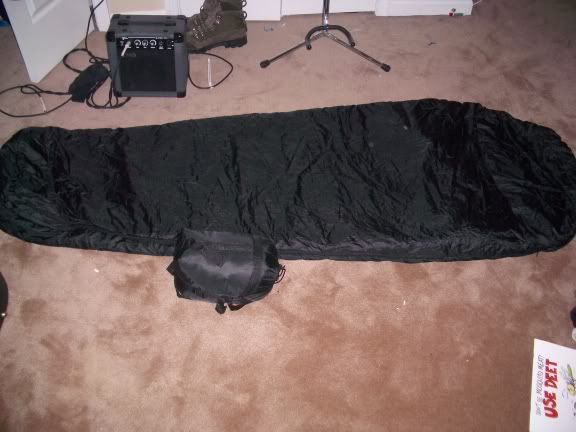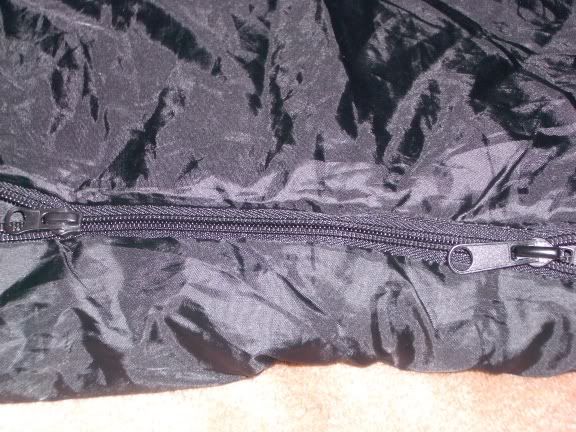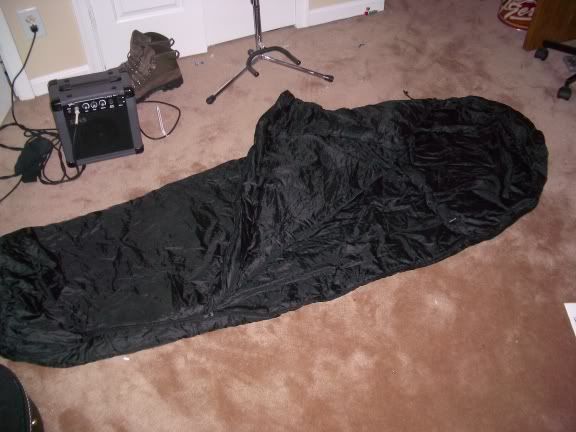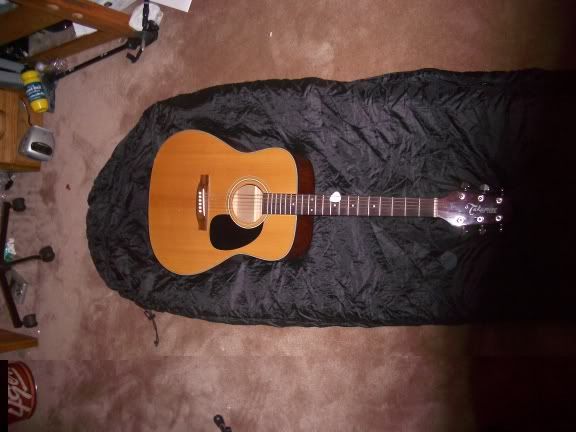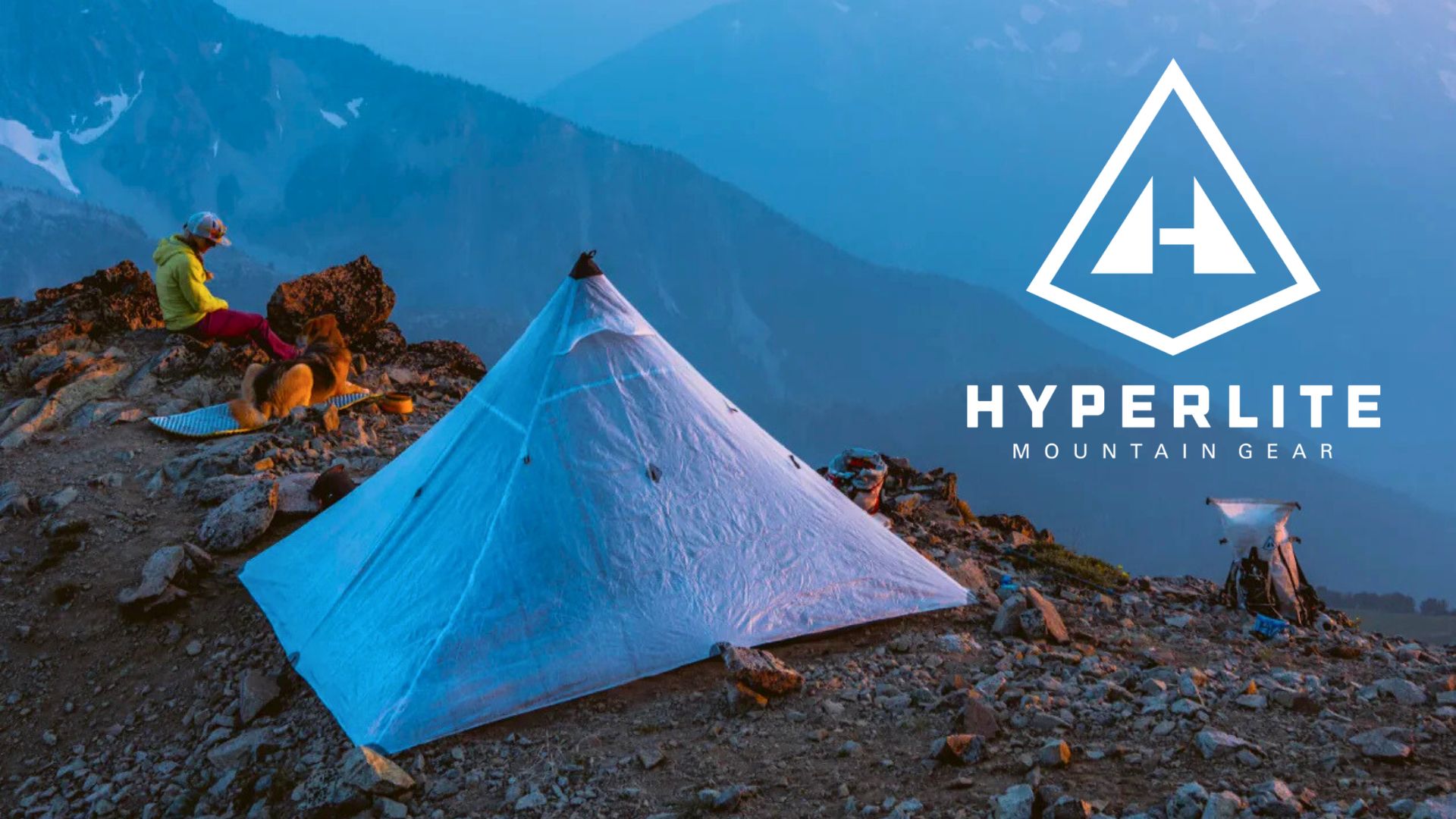Topic
Cheapest UL Gear List Challenge
Forum Posting
A Membership is required to post in the forums. Login or become a member to post in the member forums!
Home › Forums › Gear Forums › Gear Lists › Cheapest UL Gear List Challenge
- This topic is empty.
-
AuthorPosts
-
Jan 20, 2006 at 8:52 am #1217580
Here is the challenge, typically people here try to construct a list of the the lightest pack possible. How about posting the lightest 3 season list but using the cheapest equipment that you can manage.
Here is the catch, the list has be useful for everyone, novice and advanced hikers alike.
So the the challenge is not neccessarily to just have the cheapest, lightest, or most utilitarian list. The challenge to put together something that balances all of these issues.
Jan 20, 2006 at 11:00 am #1349018Homemade gear allowable? If so, I think I may have a contender pretty soon :D.
Ben
Jan 20, 2006 at 12:00 pm #1349021Whats the goal?
30degree comfort rating?
I have started list like this but have had problems with clothing, I will post a “gear list” and see what you think but clothing is hard, just too many options, I mean at a thrift shop you can get a hat for a dollar, but stuff like this is not alwys available and not everyone has stores like this near them. so I dont know what to put.
Jan 20, 2006 at 12:26 pm #1349022Its really hard to do something like this without some boundaries. Definatly doable if theres no limits set on availablity and such. I mean a fully homemade set up for summer conditions can be done for very little money at all. Buy your clothes at WalMart, make your stuff from 2nds fabric, and sacrific weight or compressibility for cost with a fleece sleeping bag and your talking a summer setup for like $50.
Jan 20, 2006 at 1:04 pm #1349026it has to be compatible with 3 seasons so I guess down to 20 degrees, we can have two categories homemade lists and store bought lists as not everyone is capable of making their own equipment. This sort of ties into my point that it has to be realistic for both novices and experienced hikers. A homemade alcohol stove is easy enough for just about anyone to make, a homemade sleeping bag is not.
Jan 20, 2006 at 1:52 pm #1349030While I’m sure the winner will be someone who REALLY knows how to shop the sales, this thread may give lots of great info to people who are intimidated by high-priced UL gear. I would request that wherever possible, contributors reveal their sources for gear/material/whatever. That way, the rest of us can tag along.
Ben
Jan 20, 2006 at 4:01 pm #1349037Anonymous
InactiveMichael,
Good Idea! This will appeal to most of the cheap bastards and could be fun.
Here is a couple ideas for your Cheapest UL Gear List contest!
· Gear must be Non-Sale Price. Claims of fantastic sales are sometimes hard to prove and since this is a competition might as well make it more challenging.
· If there is a tie were 2 of the Cheapest UL Gear List are submitted at the identical lowest cost a fair tie-breaker would be to go with the Lowest Weight Cheapest UL Gear List.
Regards
Jan 20, 2006 at 6:58 pm #1349044Homemade gear?
That’s going to be a problem. Me, I make almost everything except headlamps and some clothing. It hardly seems fair. Would we include materials costs? And how?On the other hand, a boughten-only gear list would be useful for folks such as Scoutmasters. I met one the other day who works with a troup of poor rural kids in Arkansas. He didn’t think they could backpack because of gear costs.
Maybe if Tyvek or other roll goods could be included and the make-it-yourself was limited to non-sewing jobs, then youth leaders could have a realistic guide.
Jan 20, 2006 at 7:17 pm #1349045well I think we have established some general guidlines, I think democracy should decide in the end what list is best taking into consideration all of these concerns. You can post both homemade gear lists, store bought lists and a combination of both but I think the winner should have the most realistic, inexpensive, and light list for hikers of all levels of experience.
If somone wants to try to make rules for this contest feel free but I think it needs to be a combination of the factors I mentioned.
If something is homemade but requires special equipment, skills, or alot of time to make it may not necessarily be the cheapest option even if it appears to be at first. One example, many people do not own sewing machines these days so sewing a quilt may be more expensive than actually buying a decent bag for many people.
So cost of materials and equipment and even time can be a big factor.
I agree with these other general rules mentioned before
· Gear must be Non-Sale Price. Claims of fantastic sales are sometimes hard to prove and since this is a competition might as well make it more challenging.
· If there is a tie were 2 of the Cheapest UL Gear List are submitted at the identical lowest cost a fair tie-breaker would be to go with the Lowest Weight Cheapest UL Gear List.
Jan 20, 2006 at 8:42 pm #1349046I agree with those rules above. 1] Non-sale price only. 2] Cheap is the main goal, but weight is the tie-breaker. 3] 3-season suitable.
I’ll keep a guideline for myself to limit DIY gear to items that can be completed from 0 to finished, with no prior skill, in about a half-hour or less. Aiming for the introductory hiker who wants to minimize total investment of both money and time.
I’m looking forward to the other lists.
-MarkJan 20, 2006 at 9:40 pm #1349048This could be a lot of fun but it could also break down into quibbling over details unless there is a bit more structure. Topics I think we ought to reach some agreement on:
1) What are we weighing? My own vote would be everything you leave the trailhead with less the big 3 consumables (food, water, fuel)
2) What weight constitutes UltraLight? 15lbs FSO? 20? 10?
3) I’m a big fan of MYOG but I think to be fair you have to cost it assuming that you start with no tools and include the tools cost. If you buy a tool that can be used in making more than one item then you can split the cost between the items.
4) I’m also a scouter and appreciate that a majority of 11-17 yr olds aren’t gonna successfully sew a tarptent or pack or insulated jacket but I wouldn’t let the needs of youth group leaders rule the roost on this. Most of us are capable of picking thru the submissions and assembling a kit using the pieces we find workable. Notice that I did *NOT* say that youth are incapable of sewing … just that you’d go broke if you bet on 100 of them sewing their own kit.
5) When using recycled items (a can for a pot, a soda bottle for water etc) I’d vote that the cost be $0.00 as long as it is from an item that the mythical typical person might reasonably use in their day-to-day life.
6) Regarding sale prices … I’d be OK allowing verifyable nationally advertised sale prices. Example, REI brand nylon convertable pants are typically priced approx $50 but anyone who watches their sales for a year will have 2-3 opportunitied to buy then for $35.
7) We do need to set a minimum temp. Here in MN, 20F would cover most 3 season work. But what ever is agreed works for me.
8) Lastly, I’d vote that if the consensus is that an item can serve multiple people you ought to be able to pro-rate the cost and weight. Example, if two people can get by with an 8×10 tarp for a sleeping shelter I’d vote to count half the cost and weight.
Jan 20, 2006 at 11:29 pm #1349051>8) Lastly, I’d vote that if the consensus is that an item can serve multiple people you ought to be able to pro-rate the cost and weight. Example, if two people can get by with an 8×10 tarp for a sleeping shelter I’d vote to count half the cost and weight.
This thread reminded me that I had been meaning to make a cheap plastic tarp. The first chapter in Ray Jardine’s The Ray-Way Tarp Book describes the “poly-tarp”, a 10×14 piece of 3-mil polyethylene plastic which was used to shelter four adults. The 3-mil plastic was also used for ground sheets. I think it will be tough to find a cheaper and lighter 4-scout shelter, which weighs about 9 oz./person at a cost of about $2/person (including guylines and stakes) and can be made by the scouts within a few minutes. Guylines can be made from Venetian blind cord, which costs about $2.50 for 50 ft. (enough for one tarp) and weighs about 1 oz. For tent stakes, thin steel or aluminum rod can be bought in bulk, cut to length, and bent in a vise; six stakes would cost about $2 and weigh less than 4 oz.
A single-person shelter could be made from Husky Contractor Clean-Up Bags, which are 4 ft. x 5.5 ft. (cut open) 3-mil poly. Two bags taped together with packing tape would probably hold reliably, yielding a 5.5 ft x 8 ft tarp weighing about 15 oz. for less than $7, including guylines and stakes.
As for stoves, most of the do-it-yourself alcohol can-stove designs involve sharp objects and tools. However, the SuperCat stove (the description is on BPL somewhere) involves nothing more than a cat food can and a hole punch (stove weight is 0.3 oz, and it acts as its own pot stand). Consider the Robinson Cat Stove for multi-person cooking. But probably the lightest stove+fuel solution, also easily made and promoting fire-building skills for scouts, is Ryan Faulkner’s “1.5oz wood stove” (BPL thread). Cost of stove: free (tool required is hole punch, can punch or old scissors, which are household items).
Jan 21, 2006 at 10:28 am #1349054A couple options for cooking gear would be that mini wood stove of mine and an antigravitygear pot. or a cheaper and lighter option which I like better would be a homemade elite style stove and 24oz energy drink can pot.
Just a question?
is this supposed to be a contest, I think it would be more sucessful if we worked together to form the cheapest UL kit ever. I mean look at what we did for the SUL winter challenge, if it was a contest, I dont know how well it would have turned out.
Jan 21, 2006 at 11:11 am #1349055I’ve thought about making some sturdy ultralight backpacks for my nephews rather than spending $$ on something they’ll soon outgrow and/or destroy. So I’ll just make the packs out of trash (bags).
I took an empty bag that held 40 lb. of pellet-stove pellets; I think it’s 3- or 4-mil poly. I made shoulder straps (fixed length) from 1.8-mil packing tape, sticky against sticky with about 4-6 inches of the tape stuck to the bag above and below where the strap attaches. If the strap is attached a bit below the top of the bag, the top can be rolled closed. This is a pretty beefy pack: I put 40 lb. of pellets in it and walked around for a while without causing any damage to the pack, shoulder straps or my shoulders. Shoulder strap padding, if needed, is easily made by taping on an old polyester sock or a thin piece of closed-cell foam. External pockets can be made by taping on cut-up bags, zip-lock bags or plastic mesh of the desired size. There are several ways to make the fixed-length shoulder straps adjustable. Repairs are easily made in the field with a bit of extra packing or duct tape.
The result is a waterproof 1400ci (23l) backpack that weighs 2.1 oz and costs about a nickel to make. One household with a pellet stove could furnish an entire troop of scouts with free bags over the course of a single winter, and $5 of packing tape will make over 100 backpacks. Even if you go out and buy trash compactor or lawn bags of your desired size, the cost is still less than $1.
Jan 21, 2006 at 11:30 am #1349056>an antigravitygear pot. or a cheaper and lighter option which I like better would be a homemade elite style stove and 24oz energy drink can pot.
I prefer the 24 oz. Heineken ‘keg’ (1.2 oz including its own lid) because it’s sturdier, but at the same price (free) and a fraction of an ounce less weight Ryan’s 24 oz. energy drink can will probably get the nod. For a larger, more stable pot for two I use the Mirro 1l aluminum grease pot available for about $5 at WalMart (4.3 oz with its own lid or 3.0 oz with a foil lid). Too bad Heineken doesn’t make a ’40’; they do, however, make a 5-liter keg which would be a good size for patrol cooking on a #10-can wood stove.
RyanF wrote:
>I think it would be more sucessful if we worked together to form the cheapest UL kit ever.I think this is a great idea, since I wasn’t planning on coming up with an entire kit and I’m more interested in everybody else’s suggestions anyway. I’ve got three nephews that slogged under heavy, wet, ill-fitting gear (including jeans and 5-pound backpacks) last summer, and this summer I want it to be different.
Jan 21, 2006 at 2:42 pm #1349057The large Sterno can makes a good one cup ‘pot’ weighing 0.3 with a 22 gauge wire bail and high temperature silicone pads for easy handling. And if you cut a Heineken down to hold 2 cups (just above the top flange) it makes a strong pot weighing only 0.7 with a wire bail and silicone pads.
Jan 21, 2006 at 4:05 pm #1349062I think Ray Jardine’s BB is a great place to start for cheap and lightweight gear. Make a few changes to his gear choices such as: alcohol stove instead of MSR gas stove, Equinox poncho-tarp instead of tarp and rainwear, Aquamira instead of unfiltered water and ramen noodles instead of corn pasta:)
Also Campmor brand clothing is cheap and could satisfy basic clothing requirements. Campmor and Kelty have ‘el cheapo’ down sleeping bags. And of course there is always slumberjack!
Jan 22, 2006 at 10:10 am #1349093I vote for:
Shelter: Tyvek pohcho/tarp. Multiple use. Material cost, $6. Weight, 13 oz in 5.5 X 9. Breathable, waterproof, good emergency bivy, versatile shelter, safer for kids, can be made by kids.What do yall think about the heaviest and most expensive part of this project: the sleeping bag/quilt? I vote for a quilt, preferably one that can be used as a serape (similar to JacksRBetter’s whatchamacallit) or a cloak to substitute for a jacket in camp. But after that I’m stuck. Perhaps a dime store sleeping bag could be cut down, but I havn’t gone shopping.
Jan 22, 2006 at 12:02 pm #1349105for a really cheap, 30 degree, synthetic, 2.3lb sleeping bag
go to http://www.majorsurplusnsurvival.comsome pics of the $25 bag

not quite as beautiful as a mont bell bag, oh well.
doule sided zipper for foot box ventilation
you cant really see the draft coller and draft tube, but its there
the best way I could think of to show the width of the bagJan 22, 2006 at 2:21 pm #1349111Tyvek poncho/tarp sounds good for a do it yourselfer. How about a vinyl poncho (9oz, $3) and a roll of 3-4mm plastic sheeting for tarp and groundcloth? Now we’re talking supa-cheap!!
Sleeping bag: I think someone’s gonna have to pony up a little cash for this one. How about, “grandma, can I have $50 to buy a cheap generic sleeping bag?”
Backpack: hmmmm. generic external frame?? canvas bookbag?? grandma gatewood laundry bag?? that interesting pellet stove bag idea??
Jan 22, 2006 at 2:58 pm #1349115I have one of those. It’s a good value for the price.
You can drop about 2oz from the weight by amputating the stuff sack’s compression straps … it’s a very tight stuff and they provide little (if any) volume reduction.
But even though I’m a warm sleeper and that bag would need a lot of help to keep me comfortable at 30F …. probably OK at 40F in a tent, perhaps 45F under a tarp if there’s a little wind.
But that is not a complaint, it has the side benefit of ‘forcing’ one towards multi-use clothing. I’ll want to have warmer clothing for 30F mornings and sub-40F evenings in camp anyway.
I’m planning on demo-ing it to our scouts as a low cost option for summer backpacking.
Jan 22, 2006 at 6:23 pm #1349130Here’s another item, $10 + shipping, 3.2 oz.:
Sportshell
This is a 3.2 oz. Tyvek W/B windshirt with a little rain protection. No hood, no zipper flap. Just the thing to wear under a poncho to keep your arms dry or anytime a windshirt is indicated. An alternative to megabucks windshirts.Jan 22, 2006 at 6:36 pm #1349131Stakes:
Coathanger ‘U’ stakes. Cost = $0, Weight = .25 for 6 and 4 inch legs (legs are different lengths). As light as titanium and hold better than 6″ skewer stakes.Jan 22, 2006 at 6:57 pm #1349133Sleeping pad:
Coleman green foam, 50″ X 20″ tapered, Weight = 5.5 oz, Cost = $6 to 10.Jan 22, 2006 at 9:49 pm #1349138Anonymous
InactiveAnother sleeping bag contender for the ultra-light & ultra-cheap list is the Lafuma GR Junior 33-Degree Mummy Sleeping Bag. No Tax, No Shipping fee: $29.99
Specifications:
· Temperature rating: 33 degrees Fahrenheit
· Size: 5 feet, 7 inches x 2 feet, 3 inches
· Stuff sack size: 12 x 7 inches
· Weight: 2 pounds, 2 ounces
· Shell: Polyamide
· Lining: PolycottonA possible consideration for the scouting crowd.
-
AuthorPosts
- You must be logged in to reply to this topic.
Forum Posting
A Membership is required to post in the forums. Login or become a member to post in the member forums!
LAST CALL (Sale Ends Feb 24) - Hyperlite Mountain Gear's Biggest Sale of the Year.
All DCF shelters, packs, premium quilts, and accessories are on sale.
Our Community Posts are Moderated
Backpacking Light community posts are moderated and here to foster helpful and positive discussions about lightweight backpacking. Please be mindful of our values and boundaries and review our Community Guidelines prior to posting.
Get the Newsletter
Gear Research & Discovery Tools
- Browse our curated Gear Shop
- See the latest Gear Deals and Sales
- Our Recommendations
- Search for Gear on Sale with the Gear Finder
- Used Gear Swap
- Member Gear Reviews and BPL Gear Review Articles
- Browse by Gear Type or Brand.

